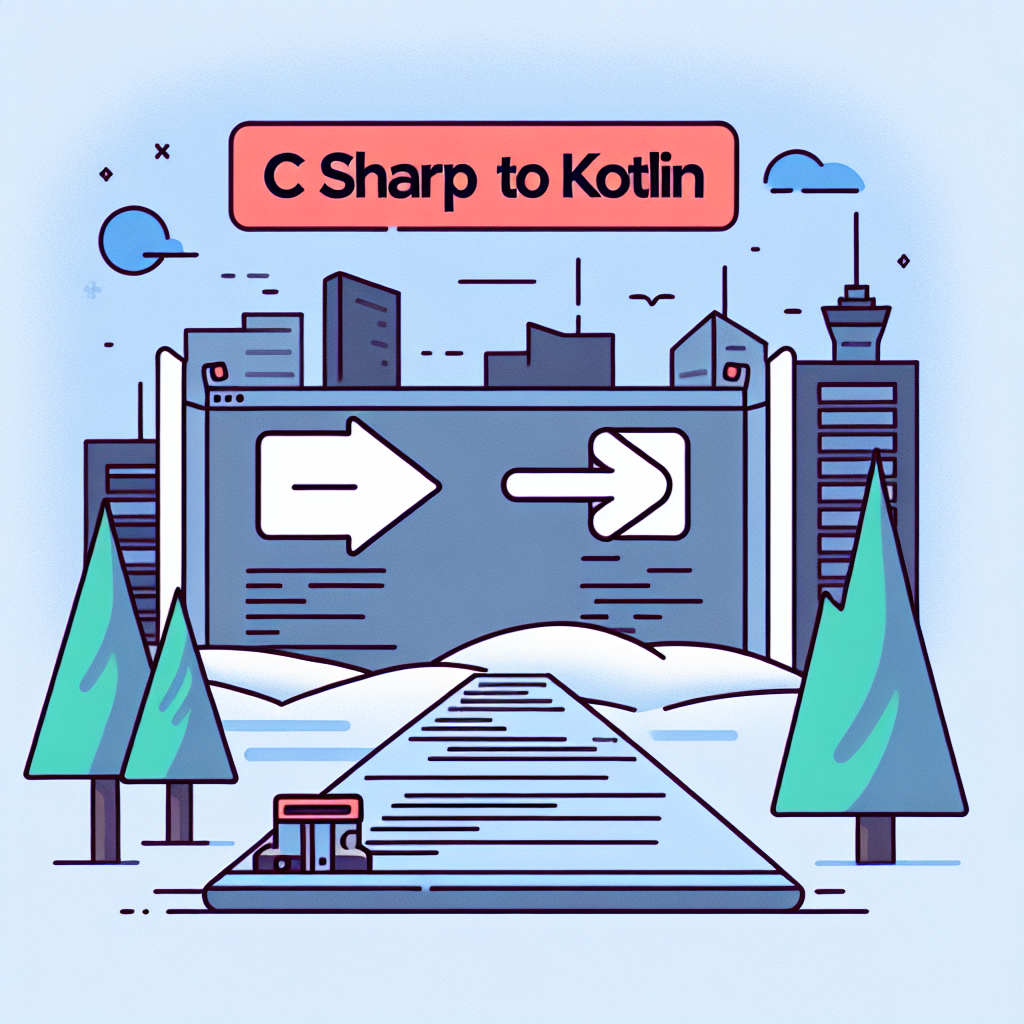Convert C# to Kotlin Effortlessly: Online Tool Guide
Effortlessly convert C# to Kotlin with our advanced tool. Streamline your code transition process while maintaining accuracy and efficiency. Try it now!
Source Code
Converted Code
Output will appear here...
The C# to Kotlin converter tool streamlines your development process by effortlessly transforming C# code into Kotlin, enhancing cross-platform app development. Ideal for developers transitioning from .NET to Android, this tool ensures code consistency and reduces manual re-coding time. Boost productivity and maintain code quality with seamless integration and automatic syntax conversion.

C# to Kotlin Conversion Tool Link to this section #
Transforming code from C# to Kotlin can streamline your development process, especially when integrating with Android applications. This tool automates the conversion, ensuring efficient and accurate translation of syntax and structures.
Key Features Link to this section #
- Automated Conversion: Quickly convert C# syntax to Kotlin, maintaining the logic and flow of your code.
- Syntax Mapping: The tool accurately maps common constructs and libraries between C# and Kotlin.
- Code Snippets: Provides direct code examples to illustrate conversion principles.
Why Use the C# to Kotlin Tool? Link to this section #
- Efficiency: Save time by automating the manual conversion process.
- Accuracy: Ensure code integrity with precise translation.
- Compatibility: Seamlessly integrate C# codebases into Kotlin projects, especially for Android development.
Conversion Examples Link to this section #
C# Code Example:
public class HelloWorld {
public static void Main() {
Console.WriteLine("Hello, World!");
}
}
Converted Kotlin Code:
fun main() {
println("Hello, World!")
}
Considerations Link to this section #
- Type System: Both languages have strong type systems, but subtle differences exist. This tool takes care of these nuances.
- Null Safety: Kotlin's inherent null safety can impact how certain C# nullables are converted.
- Asynchronous Operations: Conversion of async and await patterns in C# is handled, aligning with Kotlin's coroutine mechanisms.
Additional Resources Link to this section #
This conversion tool is essential for developers transitioning from C# to Kotlin, offering a reliable and streamlined solution for cross-platform development.
Frequently Asked Questions
How do I convert a C# project to Kotlin?
Converting a C# project to Kotlin involves several steps, including rewriting the code manually or using converters to translate syntax. Since C# and Kotlin are designed for different platforms (C# for .NET and Kotlin primarily for JVM and Android), direct conversion tools are limited. It is recommended to understand the architecture and logic of your application before attempting to rewrite it in Kotlin.
Are there any tools available to help convert C# code to Kotlin?
While there are no direct tools for converting C# code to Kotlin due to the differences in platforms and language paradigms, you can use interoperability tools and plugins to facilitate the conversion process. For instance, JetBrains offers tools that can help with Kotlin code generation and refactoring, but manual adjustments are typically necessary.
What are the main differences between C# and Kotlin that I should be aware of when converting code?
C# and Kotlin differ in several key areas, including platform targeting (C# is primarily for .NET, while Kotlin is for JVM/Android), language features (such as extension functions and null safety in Kotlin), and syntax. Additionally, C# has features like LINQ and delegates, while Kotlin offers coroutines for asynchronous programming. Understanding these differences is crucial for an effective conversion.